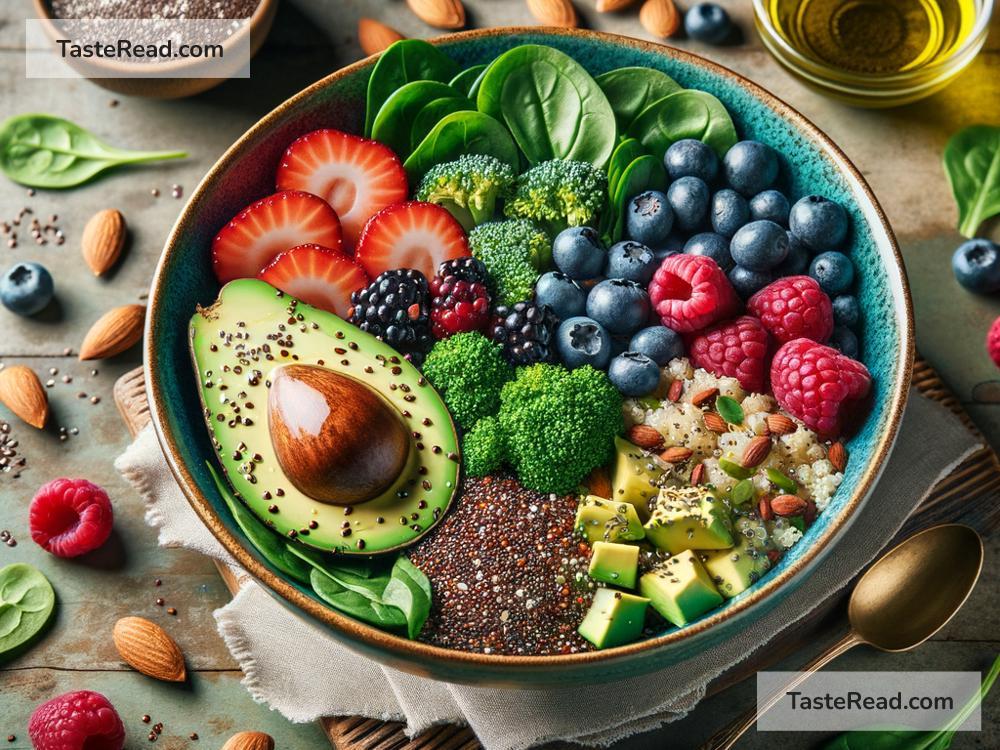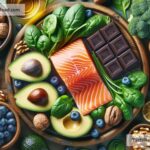Foods That Support Colon Health: Eat Your Way to Wellness
Your colon plays an essential part in your digestive system. Its job is to absorb water, process waste, and keep your body running smoothly. But did you know that what you eat can help your colon stay healthy? Choosing the right foods can make a big difference in preventing digestive issues and even reducing your risk of colon-related diseases like cancer. This blog will take you through some simple, tasty foods that can help support colon health.
1. Fiber: The Secret to a Happy Colon
Fiber is a superstar when it comes to colon health. It helps add bulk to your stool, making it easier to pass, which can reduce the risk of constipation and other digestive concerns. There are two types of fiber: soluble and insoluble. Both types are great for your colon.
- Soluble Fiber dissolves in water and forms a gel-like substance, which helps improve digestion and balances blood sugar levels.
- Insoluble Fiber doesn’t dissolve. Instead, it provides structure and helps push waste through your colon more efficiently.
Foods rich in fiber include:
– Fruits: Apples, pears, bananas, and berries. They’re tasty, easy to snack on, and great for digestion.
– Vegetables: Broccoli, carrots, spinach, and sweet potatoes provide a healthy dose of fiber.
– Whole Grains: Quinoa, oats, whole wheat bread, and brown rice are loaded with fiber. Say goodbye to overly processed white bread; your colon will thank you!
2. Probiotics: Your Gut’s Best Friend
Probiotics are live, friendly bacteria that can help improve your gut health, including your colon. They balance the microbiome in your digestive system, which can improve nutrient absorption and fight off bad bacteria that might cause illnesses.
Great sources of probiotics include:
– Yogurt: Look for brands with active or live cultures. Skip the sugary options and try plain Greek yogurt instead!
– Kefir: This drink is similar to yogurt but thinner in texture and packed with even more probiotics.
– Fermented Foods: Sauerkraut, kimchi, miso, and pickles are all excellent choices. Just make sure they’ve been naturally fermented.
3. Prebiotics: Feeding the Good Bacteria
Prebiotics are like food for probiotics. These compounds help good bacteria grow and thrive in your colon, supporting healthy digestion and immunity. Foods high in prebiotics are rich in certain types of fiber that your body doesn’t digest — they go straight to the gut bacteria instead.
Examples of prebiotic foods include:
– Bananas: They’re not just rich in fiber, but they also feed the good bacteria!
– Onions and Garlic: These flavor-packed ingredients aren’t just great in cooking; they also help foster a healthy colon.
– Asparagus: This veggie is a prebiotic powerhouse, perfect for keeping your gut healthy.
4. Healthy Fats
Not all fats are bad! Healthy fats, especially omega-3 fatty acids, can help reduce inflammation in your colon and are beneficial for overall gut health. These fats also help your digestive system stay lubricated, making digestion smoother.
Sources of healthy fats include:
– Fatty Fish: Salmon, mackerel, sardines, and tuna are loaded with omega-3s.
– Nuts and Seeds: Almonds, walnuts, flaxseeds, and chia seeds are easy, nutritious snacks.
– Avocado: This creamy fruit is a great source of healthy fats, and it’s super versatile in recipes.
5. Hydration: Don’t Forget to Drink Water
While water isn’t exactly a food, it’s vital for colon health. Staying hydrated helps move waste through your digestive system more quickly, preventing constipation. Aim for at least 8 glasses of water a day; more if you’re very active or live in a warm climate. Don’t like the taste of plain water? Add a squeeze of lemon or try herbal teas for flavor.
6. Antioxidants: Protect Against Damage
Your colon is exposed to various toxins and waste products, which can sometimes harm its cells. That’s why antioxidant-rich foods are so important — antioxidants fight free radicals and help your colon stay protected.
Some of the best sources of antioxidants include:
– Berries: Blueberries, strawberries, and raspberries are loaded with these powerful compounds.
– Leafy Greens: Spinach, kale, and Swiss chard pack a double punch by delivering both fiber and antioxidants.
– Dark Chocolate: Yes, you read that right! Choose dark chocolate with at least 70% cocoa for both antioxidants and colon-friendly goodness.
7. Low-Processed Foods: Keep It Natural
Processed foods with added sugars, unhealthy fats, and preservatives can stress your digestive system and harm your colon over time. Instead, focus on whole, natural foods. If it comes in a box or has an ingredient list that sounds like a chemistry experiment, try to avoid it.
Final Thoughts
Your colon works hard every day, so why not support it with foods that keep it healthy and functioning? By including fiber-rich fruits and vegetables, probiotics, prebiotics, healthy fats, and antioxidant-packed foods in your diet, you can improve digestion and reduce your risk of colon-related diseases.
Small changes can make a big impact. Start by adding one new colon-friendly food to your meals each week. Before long, you’ll be on your way to better overall health — and a happier colon. Eat well, and your body will thank you!


